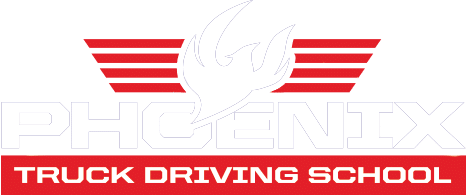The trucking industry has been an integral part of the global economy for decades, transporting goods from one place to another and supporting the growth of businesses around the world. As we continue to progress through the 21st century, emerging technologies are reshaping the way we approach this vital industry. With the introduction of autonomous vehicles, electric power trains, and advanced data analytics, the trucking landscape is rapidly evolving. In this blog, we will explore the impact of these emerging technologies on the trucking industry and the potential benefits they may bring in terms of efficiency, safety, and environmental sustainability.
Autonomous Trucks
One of the most significant advancements in the trucking industry is the development of autonomous vehicles. Self-driving trucks have the potential to revolutionize the way goods are transported, although we are still a long way from fully autonomous vehicles.
While the prospect of autonomous trucks is exciting, there are still challenges to overcome, such as regulatory hurdles, public acceptance, and the need to ensure the technology is reliable and safe. Nevertheless, the potential benefits of autonomous trucks are hard to ignore and could lead to a more efficient and sustainable future for the trucking industry.
Although many people assume that autonomous vehicles will affect trucking jobs, the more likely route for the foreseeable futures is that autonomous features will complement drivers, making their jobs easier and safer.
Electric Trucks
Another emerging technology that is set to make a significant impact on the trucking industry is the shift towards electric powertrains. Electric trucks offer numerous advantages over their diesel counterparts, including lower operating costs, reduced greenhouse gas emissions, and decreased noise pollution.
Several companies are currently working on developing electric trucks that are capable of competing with traditional diesel-powered vehicles in terms of range and payload capacity. As battery technology continues to improve, electric trucks will become an increasingly viable option for fleet operators looking to reduce their environmental footprint and save on fuel costs.
Electric trucks are also expected to benefit from the growth of renewable energy sources, such as solar and wind power. As these clean energy technologies become more prevalent, charging electric trucks using renewable energy will further decrease their environmental impact and contribute to a more sustainable transportation sector.
Advanced Data Analytics and Connectivity
The trucking industry has long relied on data to optimize operations, but the advent of advanced data analytics and increased connectivity is taking this to a whole new level. The Internet of Things (IoT) is enabling real-time monitoring of trucks, while advanced analytics platforms can process vast amounts of data to provide insights that help improve efficiency, safety, and performance.
Fleet management systems are being integrated with cutting-edge technologies such as artificial intelligence (AI) and machine learning to analyze data from various sources, including onboard sensors, GPS, and weather data. This allows fleet operators to make informed decisions about route optimization, fuel consumption, and vehicle maintenance, ultimately reducing operating costs and minimizing downtime.
Furthermore, connected trucks can communicate with each other and with infrastructure, facilitating a smoother flow of traffic and reducing the likelihood of accidents. For example, vehicle-to-vehicle (V2V) communication can help maintain safe distances between trucks, while vehicle-to-infrastructure (V2I) communication can provide real-time traffic updates to reroute trucks and avoid congestion.
Enhanced Safety Features
The integration of advanced safety features into commercial trucks is another way emerging technologies are impacting the industry. Driver-assistance systems, such as adaptive cruise control, lane-keeping assist, and automatic emergency braking, are becoming increasingly common in modern trucks, helping to reduce the risk of accidents caused by driver error.
Moreover, the development of autonomous trucks will likely bring about even more advanced safety features, as the vehicles rely on a range of sensors and cameras to navigate the roads.
Conclusion
Emerging technologies are set to have a profound impact on the trucking industry, with autonomous vehicles, electric powertrains, advanced data analytics, and enhanced safety features all contributing to a more efficient, sustainable, and safer future for the transportation of goods. While there are still challenges to be addressed, such as regulatory issues and technological development, the potential benefits of these innovations are immense.
In the coming years, we can expect to see a growing number of electric and autonomous trucks on the roads, as well as increased reliance on data analytics to optimize fleet operations. This shift will likely result in reduced operating costs for businesses, decreased greenhouse gas emissions, and improved safety for all road users.
Even as these changes affect the trucking industry, there is a persistent shortage of qualified drivers. This job is essential to keeping our nation moving forward, and truckers can enjoy excellent benefits and competitive compensation. If you’re interested in being at the forefront of the trucking industry’s future, Phoenix Truck Driving School can help you get started.
Contact us today to learn more about our truck driver training programs.



